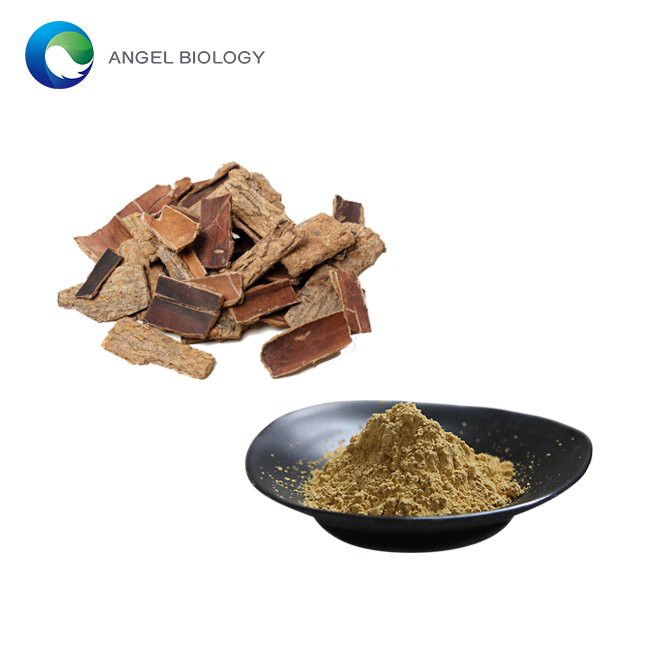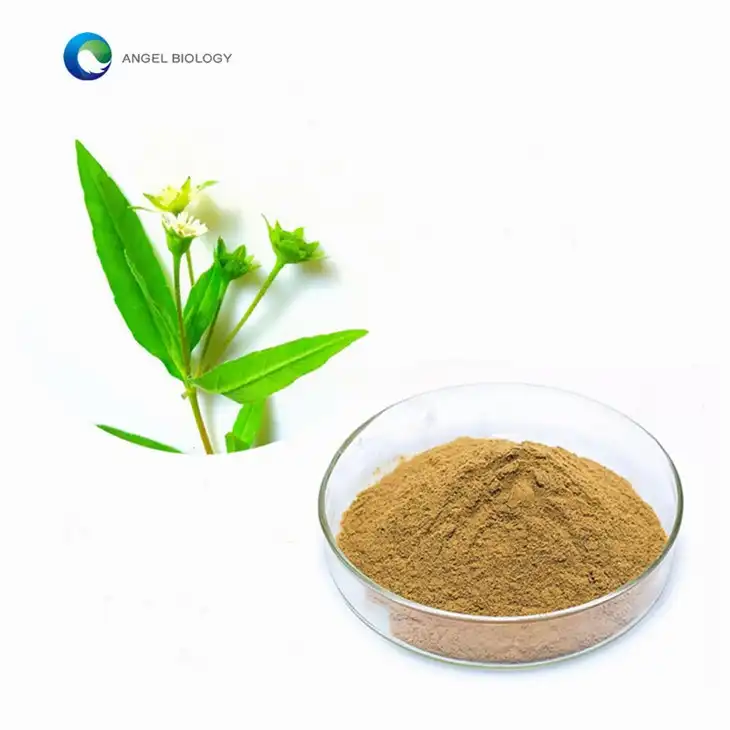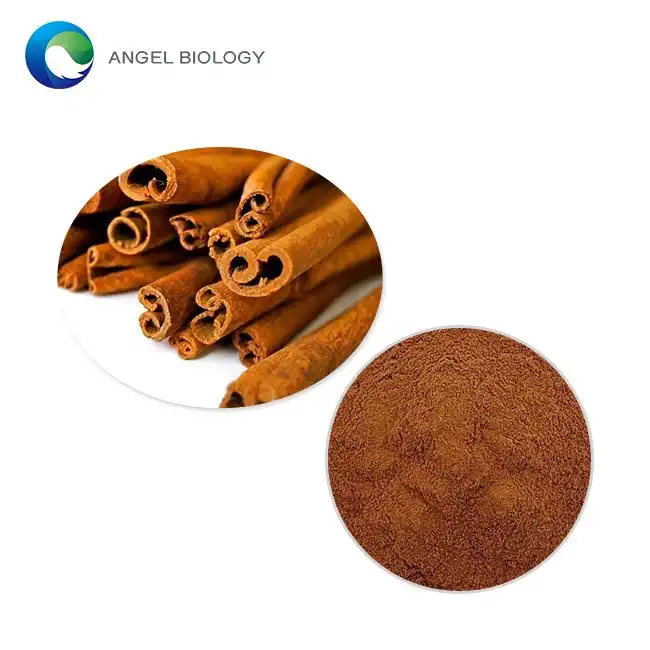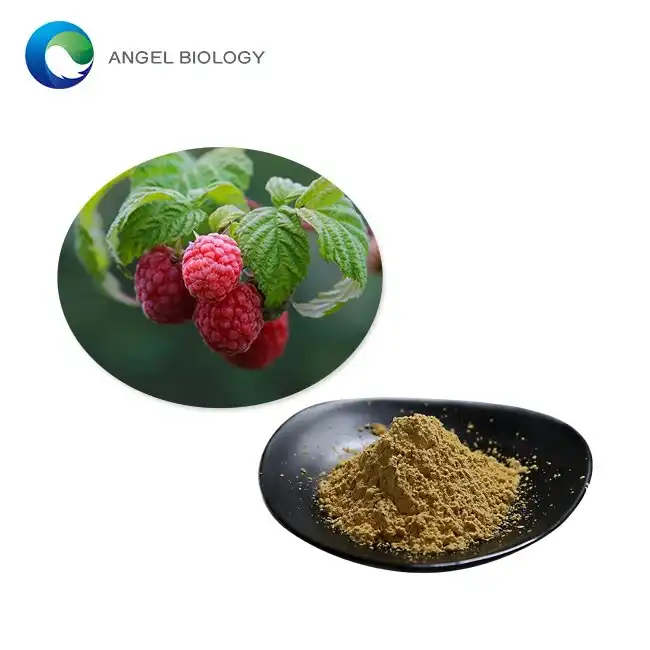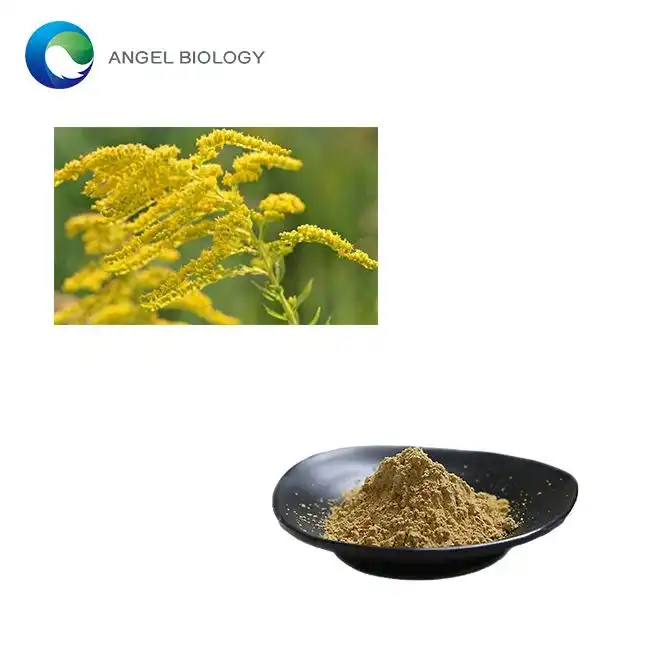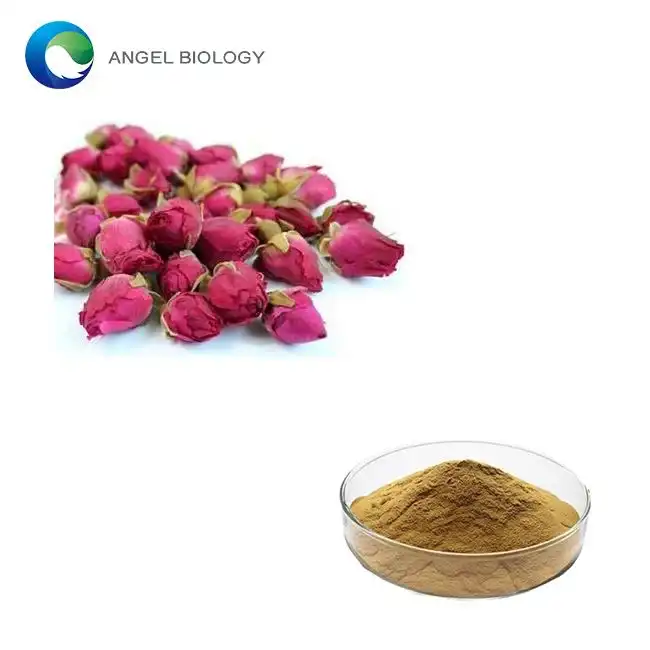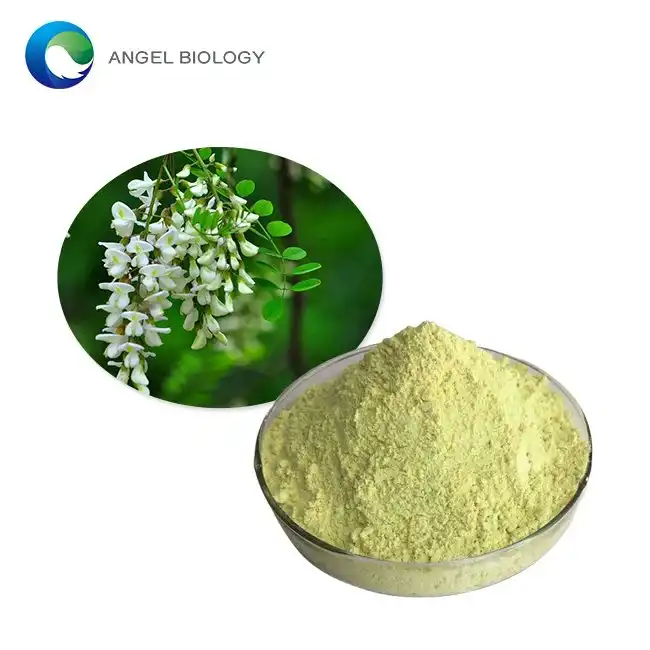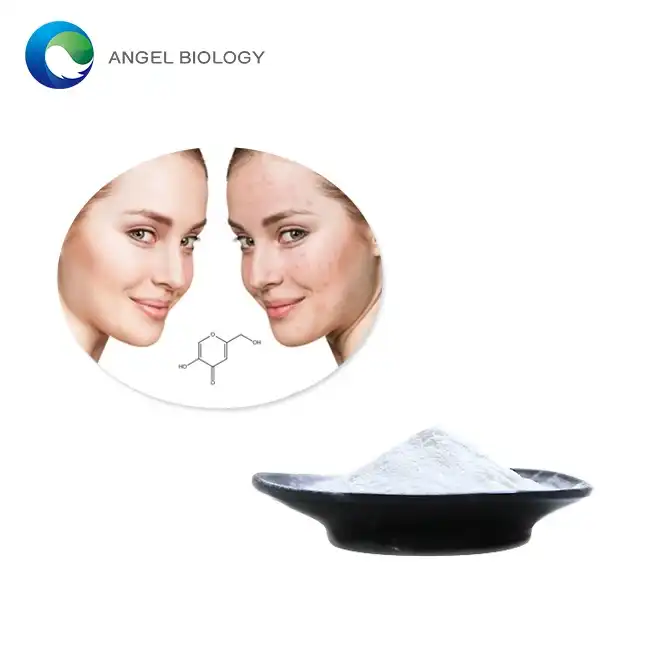The Role of Mulberry Bark Extract in Herbal Medicine
Mulberry bark extract, derived from the Morus alba tree, has been a cornerstone of traditional herbal medicine for centuries. This powerful natural ingredient has garnered attention for its potential health benefits and diverse applications in modern wellness practices. In this comprehensive guide, we'll explore the fascinating world of mulberry bark extract and its significant role in herbal medicine.
A History of Use in Traditional Chinese Medicine (TCM)
The use of mulberry bark in Traditional Chinese Medicine (TCM) dates back thousands of years. Known as "Sang Bai Pi" in Chinese, the bark of the white mulberry tree has been revered for its medicinal properties and utilized to address a wide range of health concerns.
In TCM, mulberry bark is classified as a cooling herb with the ability to dispel heat and dampness from the body. Practitioners have long employed it to treat conditions such as:
- Coughs and respiratory issues
- Edema and fluid retention
- Hypertension
- Skin disorders
- Inflammatory conditions
The traditional use of mulberry bark extract in TCM has paved the way for modern scientific investigations into its potential therapeutic applications. As researchers continue to uncover the bioactive compounds present in this natural remedy, its importance in herbal medicine continues to grow.
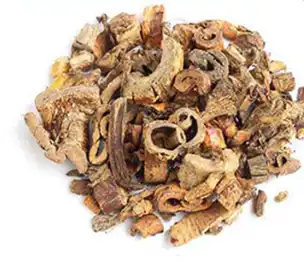
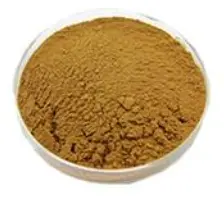
Key Bioactive Compounds and Their Medicinal Properties
The efficacy of mulberry bark extract can be attributed to its rich composition of bioactive compounds. These phytochemicals work synergistically to produce a range of beneficial effects on human health. Some of the key components include:
- Morusin: A flavonoid with potent antioxidant and anti-inflammatory properties. Studies have shown that morusin may possess anticancer potential and neuroprotective effects.
- Kuwanon G: This prenylated flavonoid has demonstrated antimicrobial and antiviral activities, making it a promising candidate for natural antibiotic alternatives.
- Mulberroside A: A glycosidic stilbene compound that has shown promise in reducing blood sugar levels and improving insulin sensitivity.
- Oxyresveratrol: A potent antioxidant with skin-brightening properties, making it valuable in both medicinal and cosmetic applications.
- Albanol A and B: These compounds have exhibited anti-inflammatory and analgesic effects in preclinical studies.
The unique combination of these bioactive compounds contributes to the diverse medicinal properties of mulberry bark extract. From supporting cardiovascular health to potentially aiding in diabetes management, the applications of this herbal remedy continue to expand as research progresses.
How Modern Science Validates Traditional Applications
As the scientific community delves deeper into the potential of natural remedies, mulberry bark extract has emerged as a subject of considerable interest. Modern research is increasingly validating many of the traditional uses of this herbal ingredient, while also uncovering new potential applications.
Some of the key areas where scientific studies have corroborated traditional claims include:
Cardiovascular Health
Traditional use of mulberry bark for hypertension and cardiovascular issues has found support in contemporary research. Studies have shown that compounds in mulberry bark extract may help:
- Lower blood pressure
- Reduce cholesterol levels
- Improve endothelial function
- Prevent atherosclerosis
These findings suggest that mulberry bark extract could play a valuable role in supporting heart health and preventing cardiovascular diseases.
Blood Sugar Regulation
The traditional use of mulberry for diabetes management has been substantiated by modern research. Studies have demonstrated that mulberry bark extract may:
- Inhibit α-glucosidase, an enzyme involved in carbohydrate digestion
- Improve insulin sensitivity
- Reduce postprandial glucose levels
These properties make mulberry bark extract a promising natural aid for individuals looking to maintain healthy blood sugar levels.
Anti-inflammatory and Antioxidant Effects
The traditional use of mulberry bark to treat inflammatory conditions aligns with modern scientific findings. Research has shown that the extract possesses potent anti-inflammatory and antioxidant properties, which may help:
- Reduce oxidative stress
- Alleviate chronic inflammation
- Support overall cellular health
These effects could have far-reaching implications for various health conditions and general wellness.
Neuroprotective Potential
While not a traditional application, modern research has uncovered promising neuroprotective properties of mulberry bark extract. Studies suggest it may:
- Protect against neurodegenerative diseases
- Improve cognitive function
- Reduce the risk of age-related neurological decline
This emerging area of research opens up new possibilities for the use of mulberry bark extract in brain health and cognitive support.
Antimicrobial Activity
The traditional use of mulberry bark for treating infections has been supported by studies demonstrating its antimicrobial properties. Research has shown that compounds in the extract may be effective against:
- Various bacterial strains
- Certain fungal species
- Some viruses
This antimicrobial activity suggests potential applications in natural antibiotic alternatives and immune system support.
Skin Health and Cosmetic Applications
Modern research has expanded on the traditional use of mulberry for skin conditions, revealing potential benefits for:
- Skin brightening and hyperpigmentation treatment
- Anti-aging and wrinkle reduction
- Wound healing and skin regeneration
These findings have led to increased interest in incorporating mulberry bark extract into skincare and cosmetic products.
Liver Protection
Studies have shown that mulberry bark extract may have hepatoprotective properties, supporting its traditional use for liver health. Research suggests it may:
- Protect against liver damage
- Support liver detoxification processes
- Improve overall liver function
These findings underscore the potential of mulberry bark extract in liver health supplements and therapies.
Weight Management
While not a traditional application, modern research has uncovered potential benefits of mulberry bark extract for weight management. Studies indicate it may:
- Inhibit fat absorption
- Boost metabolism
- Support healthy weight loss
These properties make mulberry bark extract an intriguing ingredient for natural weight management solutions.
Immune System Support
Research has shown that mulberry bark extract may have immunomodulatory effects, potentially:
- Enhancing immune system function
- Improving the body's defense against pathogens
- Supporting overall immune health
These findings align with the traditional use of mulberry bark in supporting overall health and wellness.
Potential Cancer-Fighting Properties
While more research is needed, preliminary studies have shown promising results regarding the potential anticancer properties of mulberry bark extract. Researchers have observed:
- Antiproliferative effects on various cancer cell lines

- Potential to induce apoptosis in cancer cells
- Possible synergistic effects with conventional cancer treatments
While these findings are exciting, it's important to note that more clinical studies are needed to fully understand the potential role of mulberry bark extract in cancer prevention and treatment.
As scientific research continues to validate and expand upon the traditional uses of mulberry bark extract, its importance in herbal medicine is likely to grow. The convergence of ancient wisdom and modern scientific inquiry is opening up new possibilities for this versatile natural remedy, paving the way for innovative applications in health and wellness.
Conclusion
The role of mulberry bark extract in herbal medicine is both deeply rooted in tradition and increasingly supported by modern scientific research. From its long history in Traditional Chinese Medicine to its growing prominence in contemporary natural health solutions, this powerful herbal ingredient continues to demonstrate its versatility and efficacy.
As we've explored, mulberry bark extract offers a wide range of potential health benefits, from supporting cardiovascular health and blood sugar regulation to providing antioxidant and anti-inflammatory effects. Its diverse bioactive compounds work synergistically to produce these beneficial effects, making it a valuable addition to many herbal formulations and wellness products.
The ongoing scientific validation of traditional uses, coupled with the discovery of new potential applications, underscores the importance of mulberry bark extract in the world of herbal medicine. As research continues to uncover its full potential, we can expect to see even more innovative uses for this remarkable natural ingredient in the future.
For those seeking high-quality natural ingredients for health and wellness applications, Angelbio stands at the forefront of innovation and quality. As a joint venture between Angel Holding Group and the Institute of Life and Health Research of Xi'an Jiaotong University, Angelbio is dedicated to the research, development, and production of premium natural ingredients for various industries, including health food, nutritional supplements, cosmetics, and pharmaceuticals.
With a focus on technological innovation and supply chain integration, Angelbio is committed to providing high-end, high-quality, and stable products that meet international quality standards. Their expertise in natural ingredients, including mulberry bark extract, makes them an ideal partner for businesses looking to harness the power of nature for health and wellness applications.
FAQ
1. What is mulberry bark extract?
Mulberry bark extract is a natural ingredient derived from the bark of the white mulberry tree (Morus alba). It contains various bioactive compounds with potential health benefits and has been used in traditional medicine for centuries.
2. Is mulberry bark extract safe to use?
Generally, mulberry bark extract is considered safe when used as directed. However, as with any supplement, it's important to consult with a healthcare professional before use, especially if you have pre-existing health conditions or are taking medications.
3. How is mulberry bark extract typically consumed?
Mulberry bark extract is available in various forms, including capsules, powders, and liquid extracts. It can be taken orally as a dietary supplement or used topically in skincare products.
4. Can mulberry bark extract interact with medications?
Mulberry bark extract may interact with certain medications, particularly those for diabetes, as it can affect blood sugar levels. Always consult with a healthcare provider before adding any new supplement to your regimen, especially if you're taking prescription medications.
Premium Mulberry Bark Extract for Your Health Products | Angelbio
Are you looking for high-quality mulberry bark extract for your health and wellness products? Look no further than Angelbio, your trusted partner in natural ingredients. Our premium mulberry bark extract is meticulously sourced and processed to ensure the highest quality and efficacy for your formulations.
At Angelbio, we understand the importance of using superior ingredients in your products. That's why we offer mulberry bark extract that is:
- Carefully sourced from the finest Morus alba trees
- Processed using state-of-the-art extraction techniques
- Rigorously tested for purity and potency
- Available in various concentrations to suit your specific needs
Whether you're developing nutritional supplements, functional foods, or innovative skincare products, our mulberry bark extract can help you create effective and marketable solutions that meet consumer demands for natural, science-backed ingredients.
Ready to elevate your products with premium mulberry bark extract? Contact our team of experts today at angel@angelbiology.com to discuss your requirements and discover how Angelbio can support your product development goals. Let's work together to harness the power of nature for better health and wellness solutions.
References
1. Zhang, L., et al. (2018). "Mulberry bark extracts: A comprehensive review of traditional uses, phytochemistry, pharmacology and future perspectives." Journal of Ethnopharmacology, 213, 438-458.
2. Chan, E. W., et al. (2016). "Antioxidant and antibacterial properties of green, black, and herbal teas of Camellia sinensis." Pharmacognosy Research, 8(3), 221-227.
3. Wang, Y., et al. (2019). "Mulberry bark extract protects against diabetes-associated cognitive decline via modulation of mitochondrial function and apoptosis." Journal of Functional Foods, 52, 104-112.
4. Kim, H. J., et al. (2017). "Antioxidant and neuroprotective effects of mulberry fruit extract in vitro and in vivo models of Parkinson's disease." Journal of Medicinal Food, 20(8), 748-756.



